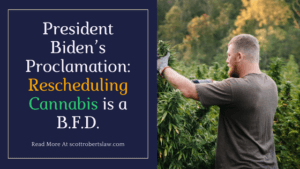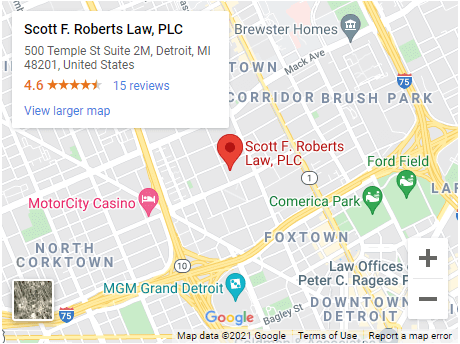Dialing back previous guidance that gave temporary operators until December 15h to obtain an MMFLA license, LARA released guidance moving the temporary authorization deadline forward to October 31st, 2018. The deadline had just been extended till December 15th for certain temporary operators that had gotten their facility application in before July 15th, which was later subject to a restraining order allowing all temporary operators to stay open past the September 15th deadline. It is likely that many of temporary operators that would have been affected by LARA’s last guidance on this matter will be the ones who are affected by this latest change in guidance.
What does this mean? Many medical marijuana dispensaries—it is currently unclear how many—will be forced to shut down while they await licensure from the State. This is not necessarily the fault of the applicants, however. LARA has been slow to process MMFLA license applications, though there have been rumors that LARA is “staffing up” to get through the backlog.
The rationale behind this sudden decision appears to be a result of a focus by LARA to push licensees into the system. Currently, the State of Michigan has not required the testing of products or secure transportation and has allowed provisioning centers to buy from caregivers until there is enough licensees in the system for this to work. This of course begs the question—is there enough licensees for the system for this change to make sense? With only a limited number of safety testing facilities, secure transporters, and growers, it is possible that this ruling grinds the soon to be implemented system to a screeching halt.
While this certainly hurts many Cannabis facilities who are slogging through the state MMFLA process, it will significantly benefits others. For example, if there are only a handful of MMJ secure transporters, these transporters will likely be swamped with business and can essentially set their own prices. Same goes with licensed safety testing facilities. With only two testing facilities licensed by the State, will they be able to handle all of the testing? Additionally, with the limited number of growers, is there enough Marijuana to supply the entire state’s patient population, or will patients be forced to call up their old caregivers or find a temporary one online?
There are currently only 12 active licensed Medical Marijuana facilities in the State of Michigan according to BMMR records, though this is likely to increase significantly with the upcoming Licensing Board meeting in October as well as the facilities from September now deciding to pull the trigger on the licensing assessment. Even so, it is hard to imagine Michigan’s medical marijuana licensing system can run with only a dozen, or even a couple dozen, licensed facilities.
With so many unanswered questions, it seems strange that LARA is rushing ahead to fully implement the system by the end of the month, especially with the possibility that the deadline could limit access to medicine for patients just a week before a hard fought election. Nonetheless, LARA is charging ahead with the new deadline, for reasons that are not quite clear.
Changes Every Week
There is certainly some irony in this decision. As the State is taking great pains to push people into the new licensing system, they will likely end up doing the opposite, at least in the short term. With the lack of facilities to actually service Michigan’s medical marijuana patient population, caregivers that were being pushed out of the system are being given a temporary reprieve. Put another way, there is simply not enough licensed growers to provide all of the state’s dispensaries with Cannabis products, so Caregivers will have to step back in.
This also means that Michigan provisioning centers will be put in a pickle. If there are only a handful of growers, and every other provisioning center will be scrambling to but from one of those growers, can they? Most growers need 3-4 months after opening to harvest and cure their first crop, which by my unofficial count, leaves only one licensed grower with enough lead time to supply the whole state starting in November. This will almost certainly raise prices substantially, which will in turn cause patients to flee back to the old caregiver model.
Another question this sudden departure from previous guidance raises is how MMJ owners and cannabis attorneys are supposed to operate in a system that seemingly changes by the week. How do owners plan ahead when the rules of the road are constantly changing? This isn’t the first time the process has changed. Previously, the State of Michigan officials were saying the whole application process would take four months. Now, an applicant would be extremely lucky to get through just Part 1 of the MMFLA application process in six months. The State is only beginning to process applications that were sent in more than three months ago.
Another example would be the change in criminal disclosure requirements, which has driven most of the application denials. When the application was first released, a supplemental applicant only needed to disclosure certain types of felonies and misdemeanors, and only those that happened in the last ten years, or in some cases five years. The application was later changed to require ALL felonies and misdemeanors be disclosed, including traffic related misdemeanors, which caused significant problems for many applicants.
If provisioning centers and other growers seeking MMFLA license knew about this in advance, like many of the other changes suddenly instituted by LARA< they likely would have had time to prepare. But without time to prepare, it is unclear how the system will work in the next few months without a sufficient amount of growers, safety testers, and transporters.
New Patient Waivers
It certainly was a busy day for LARA, which also released guidance today stating that temporary operators must obtain waivers from their medical marijuana patients with respect to products that have not been tested in compliance with the MMFLA rules.
Provisioning centers will now need to obtain a waiver from each patient who buys a product that was not tested under the MMFLA rules. If you operate a provisioning center, this will certainly create a lot of additional paperwork and headaches. If you are a patient, you should expect longer lines as dispensaries deal with this new requirement, not to mention the increase in business by patients seeking to “stock up” before they potentially lose access to affordably priced medical marijuana next month.




